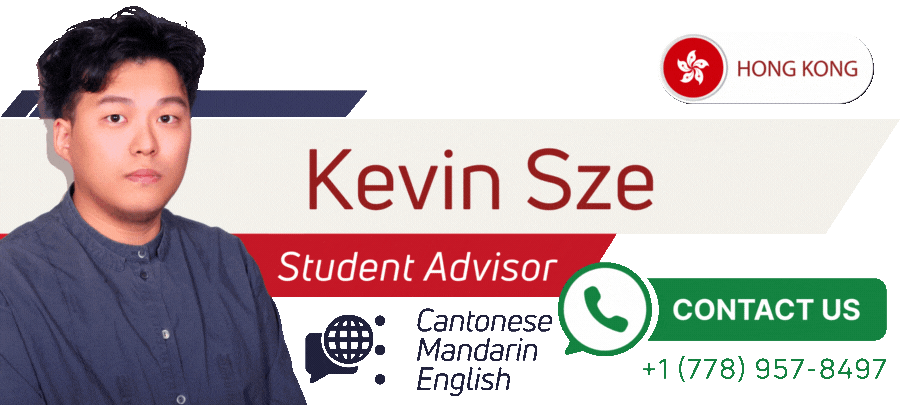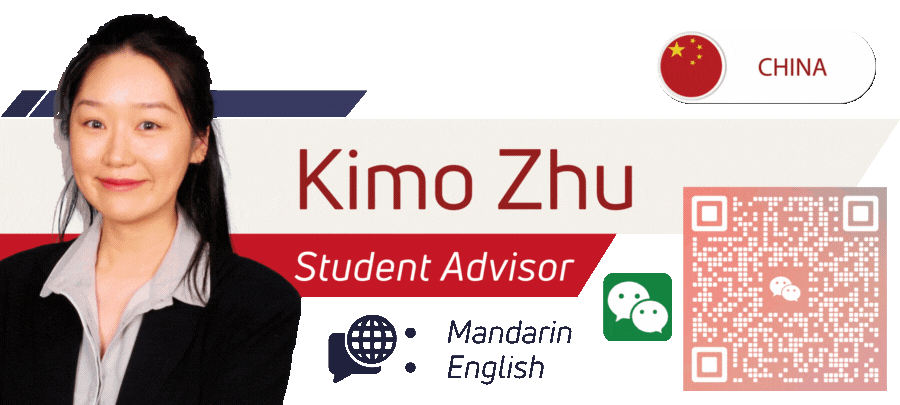What Is Hospitality Management? Career Opportunities in Canada
2024-07-26 2025-05-27 15:47What Is Hospitality Management? Career Opportunities in Canada
In each year, the hospitality and tourism is often among the most important sectors in driving the economy of Canada. Tourism had achieved its mandate of contributing 13 % to service exports as per the Statistics Canada information as of 2024 and has expanded thereafter. Destination Canada also mentioned the tourism sector recouping to its full value by 2024; from the total of 1.9 million job offers in this sector, newcomers in Canada come to approximately 30% of the tourism workforce. Now in this article, writers will reveal several hospitality and tourism jobs that are in demand now in Canada. Such multiple jobs can attract an earning of up to $130,000 per annum.
Related Article:
9 Jobs You Can Pursue after Graduated from a Hospitality Management Program in Canada
Table of Contents
ToggleHospitality management vs hotel management
Hospitality management and hotel management are closely related fields, but they have distinct differences. Here’s a comparison to help you understand them
Aspect | Hospitality Management | Hotel Management |
Scope: | Broad Industry: Encompasses a wide range of sectors including hotels, restaurants, event planning, travel and tourism, luxury services, and more. Offers careers in various areas such as food and beverage management, event management, cruise ship management, and resort management. | Focused Industry: Specifically targets the hotel sector, including accommodations, housekeeping, front desk operations, and property management. Provides in-depth knowledge and skills related to running a hotel. |
Curriculum | Comprehensive: Covers a wide array of subjects including marketing, finance, human resources, customer service, and operations management. | Specialized Courses: Focuses on subjects such as hotel operations, room division management, housekeeping, front office management, and food and beverage service. |
Skills | Versatile Skill Set: Emphasizes leadership, communication, customer service, and business management. Prepares students to work in various hospitality sectors. | Operational Expertise: Emphasizes skills needed to manage the day-to-day operations of a hotel. Focuses on customer satisfaction, operational efficiency, and quality control. |
Career Paths | Varied Roles: Graduates can work in hotels, resorts, cruise lines, event planning companies, theme parks, and more. The skills acquired are transferable across different countries and cultures | Hotel-Specific Roles: Graduates typically pursue careers in hotel management, such as front office manager, housekeeping manager, food and beverage manager, and general manager. Opportunities for advancement within the hotel industry, from entry-level positions to executive roles. |
In summary, both fields offer rewarding careers, but your choice should align with your specific interests and long-term career aspirations.
Career Opportunities for hospitality management in Canada
Canadian job prospects for graduates of hospitality management programs are immense and possibly across all fields within the specialized industry. Here are some potential career paths:
Hotel and Resort Management
- General Manager: Overseeing all operations, staff, and budgeting.
- Front Office Manager: Managing guest services, reservations, and front desk operations.
- Housekeeping Manager: Supervising cleaning staff and ensuring guest rooms and public areas are well-maintained.
- Food and Beverage Manager: Managing restaurant and bar services, including menu planning and staff supervision.
Restaurant and Food Service Management
- Restaurant Manager: Overseeing daily operations, staff, and customer service in a restaurant.
- Catering Manager: Managing catering services for events, including menu planning and staff coordination.
- Food Service Director: Leading food service operations in institutions such as schools, hospitals, and corporate settings.
Event and Convention Management
- Event Planner/Coordinator: Organizing and managing events, from weddings to corporate conferences.
- Convention Services Manager: Coordinating large-scale events and conventions, including logistics and vendor management.
- Meeting and Convention Planner: Planning and executing meetings and conventions for businesses and organizations.
Tourism and Travel Management
- Tour Operator/Manager: Creating and managing travel packages and tours.
- Travel Consultant/Agent: Assisting clients with travel arrangements and bookings.
- Tourism Development Officer: Working with government or private organizations to promote and develop tourism.
Casino and Gaming Management
- Casino Manager: Overseeing casino operations, including gaming, customer service, and compliance with regulations.
- Gaming Manager: Managing specific gaming areas within a casino, such as table games or slot machines.
Cruise Line and Airline Management
- Cruise Director: Managing onboard entertainment and guest activities on a cruise ship.
- Airline Services Manager: Overseeing in-flight services, customer service, and ground operations for an airline.
Hospitality Consulting and Training
- Hospitality Consultant: Providing expert advice to hospitality businesses on improving operations, customer service, and profitability.
- Hospitality Trainer: Developing and delivering training programs for hospitality staff.
Entrepreneurship
- Restaurant Owner: Starting and managing your own restaurant or food service business.
- Boutique Hotel Owner: Establishing and operating a small, unique hotel or bed and breakfast.
Marketing and Sales
- Sales and Marketing Manager: Promoting hospitality services and products to increase revenue and market share.
- Public Relations Specialist: Managing the public image and communications for a hospitality business.
Spa and Wellness Management
- Spa Manager: Overseeing spa operations, including treatments, staff, and customer service.
- Wellness Program Director: Developing and managing wellness programs and services.
The examples of job openings available to hospitality management graduates in Canada which shows that the industry offers diverse careers for people who wish to join it. As you will be starting your career in hospitality industry, a qualified diploma would be ideal, efficient and most importantly cheap.
Hospitality Management Program at Create Career College (CCC College)
Create Career College is offering 3 Hospitality Management Program:
This certificate program offers 4 months academic lectures with 4 months full-time co-op work experience, which includes introduction of hospitality work culture, housekeeping, front office operation and food and beverage management for students to begin their career in hospitality industry.
This 2-year diploma provides comprehensive concept and knowledge of hospitality management with a year with full-time co-op work experience. This program is partnered with the American Hotel & Lodging Educational Institute (AHLEI), student will earn up to 12 certificates and a diploma upon graduation. Upon the completion of the diploma, students are expected acquire all essential job-ready skills in current hospitality industry.
This short term program contains 650 hours of academic lecture with 150 practicum hours, students will acquire knowledge relating to marketing, human resource management, travel agency operation and more. Students will have internship opportunities to work in local travel and tourism businesses to practice their knowledge and skills.
The following programs are structured to provide students with up to date and all embracing information and skills that will enhance learning in the hospitality industry. We are proud to announce a collaboration with the American Hotel & Lodging Educational Institute (AHLEI) to present Create Career College’s Hospitality Management Diploma program with optional Co-op. AHLEI which is accredited as the Hospitality Certification Association assures compliance with excellence standards.
For instance, Create Career College students take the AHLEI certificate tests every month and can attain up to 12 certificates as well as a diploma/ certificate on their graduation.
If you are planning for an academic promotion in the hospitality industry then the CCC hospitality management course is just right for you.
What jobs can I get with a hospitality management degree or diploma?
A background in hospitality management may open a variety of job opportunities. Here are some of the career paths you can take.
Hotel Manager/General Manager
By using their business, management and interpersonal skills hotel general managers are responsible for the day to day running of the hotels, motels, lodges, inns or resort. They are in charge of supervising department heads in various divisions so general manager should be conversant with management of the hotel. Departments in a hotel can include:
- Accounts
- Food and Beverage Services
- Front Office
- Housekeeping
- Human Resources
- Information Technology
- Kitchen and Food Production
- Maintenance and Engineering
- Marketing and Sales
- Purchasing
- Security
Responsibility wise, educational requirements also differ based on the size of the total hotel or chain of hotels. A full service hotel typically requires a bachelor’s degree in hotel management or hospitality. Entries at the lower ranking may employ general managers with an associate degree while high end establishment may demand for holders of master’s degree in hospitality management.
The average annual salary of a hotel general manager in Canada can differ based on some parameters including, and not limited to, region, size of the hotel establishment and not leaving behind responsibilities of the post. On average, these positions can have a large range of pay, but, if one had to guess, somewhere in the region of CAD 60,000 – CAD 120,000 per year. The larger the hotel or located in the large city may provide the salaries above the range, or the hotel of small size or located in cheap area may provide the salaries under the range.
Front Desk Agent/Receptionist
Front Desk Agents or Receptionists play a crucial role in the hospitality industry, as they are often the first point of contact for guests. Their responsibilities typically include:
- Guest Reception and Check-In/Check-Out: Greeting guests upon arrival, checking them in, providing information about services and amenities, and ensuring a smooth check-out process.
- Reservation Management: Handling reservations, cancellations, and modifications, ensuring accuracy in booking details.
- Customer Service: Addressing guest inquiries, requests, and complaints promptly and professionally, aiming to resolve issues to the satisfaction of guests.
- Payment Processing: Handling guest payments, including processing credit card transactions, and managing cash transactions accurately.
- Communication: Serving as a liaison between guests and other hotel departments, conveying messages and requests effectively.
- Information Resource: Providing information about local attractions, dining options, transportation, and other services both within the hotel and in the surrounding area.
- Administrative Duties: Performing administrative tasks such as handling emails, answering phone calls, maintaining guest records, and preparing reports.
Skills required for Front Desk Agents or Receptionists include:
- Customer Service Skills: Ability to interact with guests in a friendly, courteous, and professional manner.
- Communication Skills: Strong verbal and written communication skills to effectively interact with guests and colleagues.
- Organizational Skills: Ability to handle multiple tasks simultaneously, prioritize workload, and manage time effectively.
- Problem-Solving Skills: Capacity to quickly assess situations, address guest concerns, and resolve issues diplomatically.
- Attention to Detail: Accuracy in handling guest information, reservations, and financial transactions.
- Computer Literacy: Proficiency in using hotel management software, reservation systems, and basic office software (e.g., Microsoft Office).
- Flexibility and Adaptability: Willingness to work varying shifts, including weekends and holidays, and ability to adapt to changing situations in a fast-paced environment.
- Team Player: Collaboration with other hotel staff to ensure seamless guest experiences and efficient hotel operations.
Overall, Front Desk Agents or Receptionists are pivotal in creating a positive first impression for guests and ensuring their overall satisfaction during their stay.
The average salary for a Front Desk Agent or Receptionist in Canada can vary based on factors such as location, experience, and the specific employer. Generally, the range can be between CAD 30,000 to CAD 45,000 per year.
Housekeeping Staff/Housekeeping Manager
Housekeeping Staff and Housekeeping Managers play essential roles in maintaining cleanliness and orderliness in hotels and other hospitality establishments. Here’s an overview of their job responsibilities and the skills typically required:
Housekeeping Staff Responsibilities:
- Room Cleaning: Cleaning and maintaining guest rooms, ensuring high standards of cleanliness and hygiene.
- Linen and Laundry Management: Changing bed linens, replenishing amenities, and managing laundry operations.
- Public Area Cleaning: Cleaning and maintaining common areas such as lobbies, corridors, and restrooms.
- Inventory Control: Monitoring and replenishing cleaning supplies and amenities.
- Guest Interaction: Responding to guest requests promptly and courteously.
- Compliance: Adhering to health and safety standards and hotel policies.
Housekeeping Manager Responsibilities:
- Staff Supervision: Managing and supervising housekeeping staff, including hiring, training, and scheduling.
- Quality Control: Ensuring cleanliness standards are met through inspections and training programs.
- Inventory and Budget Management: Monitoring and managing housekeeping supplies, equipment, and budget.
- Coordination: Collaborating with other departments such as front office and maintenance to ensure smooth operations.
- Reporting: Preparing reports on occupancy, cleanliness metrics, and staff performance.
- Guest Satisfaction: Addressing guest concerns related to housekeeping and ensuring high guest satisfaction scores.
Skills Required:
- Attention to Detail: Ensuring rooms and public areas are cleaned to high standards.
- Time Management: Efficiently managing workload and meeting deadlines.
- Teamwork: Collaborating effectively with colleagues and other departments.
- Communication: Clear and courteous communication with guests and colleagues.
- Physical Stamina: Ability to handle physical tasks such as lifting and bending.
- Problem-Solving: Addressing and resolving issues that arise during daily operations.
Average Salary:
The salary range is approximately CAD 30,000 to CAD 50,000 per year for Housekeeping Staff, while Housekeeping Managers may earn between CAD 45,000 to CAD 70,000 per year. These figures can vary significantly depending on the specific employer and the region within Canada.
Sales and Marketing Manager
A Hospitality Sales and Marketing Manager is responsible for driving revenue through effective sales and marketing strategies in the hospitality industry. Here are the typical job responsibilities and skills required for this role:
Job Responsibilities:
- Sales Strategy Development: Developing and implementing sales strategies to achieve revenue targets, including setting sales goals and analyzing market trends.
- Marketing Campaigns: Planning and executing marketing campaigns to attract guests and increase brand awareness.
- Relationship Management: Building and maintaining relationships with corporate clients, travel agencies, and other potential sources of business.
- Revenue Management: Optimizing room rates, packages, and promotions to maximize revenue.
- Market Analysis: Conducting market research and competitive analysis to identify opportunities and threats.
- Budget Management: Managing the sales and marketing budget effectively.
- Team Leadership: Leading and motivating the sales and marketing team to achieve objectives.
- Reporting: Analyzing sales and marketing performance and preparing reports for management.
Skills Required:
- Sales Skills: Strong negotiation and persuasion skills to close deals and build client relationships.
- Marketing Expertise: Knowledge of digital marketing, advertising, and branding strategies.
- Communication: Excellent verbal and written communication skills to effectively convey messages to clients and team members.
- Analytical Thinking: Ability to analyze data and market trends to make informed decisions.
- Leadership: Ability to lead and inspire a team towards achieving sales targets.
- Customer Focus: Commitment to delivering excellent customer service and enhancing guest experience.
- Organizational Skills: Ability to prioritize tasks, manage time effectively, and meet deadlines.
Average Salary:
The salary range typically falls between CAD 60,000 to CAD 100,000 per year. Higher salaries may be offered by larger hotels or luxury properties, especially in major urban centers, while smaller establishments or those in less competitive markets may offer salaries towards the lower end of this range.
Event Planner
An Event Planner is responsible for coordinating and executing various types of events, ranging from corporate meetings and conferences to weddings, parties, and other social gatherings. Here are the typical job responsibilities and skills required for this role:
Job Responsibilities:
- Event Planning: Planning and organizing all aspects of events, including venue selection, catering, entertainment, decorations, and logistics.
- Budget Management: Developing and managing event budgets, ensuring expenditures stay within budgetary limits.
- Vendor Coordination: Negotiating contracts with vendors and managing relationships with caterers, florists, decorators, and other suppliers.
- Client Communication: Consulting with clients to understand their event needs, preferences, and budget constraints.
- Logistics Management: Overseeing event setup, ensuring all arrangements are in place and handling any on-site issues that may arise.
- Marketing and Promotion: Promoting events through various channels to attract attendees and ensure successful participation.
- Post-Event Evaluation: Evaluating the success of events, gathering feedback from clients and attendees, and preparing post-event reports.
Skills Required:
- Organizational Skills: Ability to manage multiple events simultaneously, prioritize tasks, and meet deadlines.
- Communication: Strong interpersonal and communication skills to interact effectively with clients, vendors, and team members.
- Negotiation: Skill in negotiating contracts and pricing with vendors to achieve the best value for clients.
- Creativity: Ability to develop unique event concepts and themes that align with client preferences and objectives.
- Problem-Solving: Capacity to anticipate and resolve potential issues during event planning and execution.
- Attention to Detail: Ensuring all event details, from seating arrangements to technical setups, are meticulously planned and executed.
- Flexibility: Adaptability to handle last-minute changes and unexpected challenges during events.
Average Salary:
The salary range typically falls between CAD 40,000 to CAD 70,000 per year. Event planners with extensive experience, specialization in certain types of events, or those working in larger metropolitan areas may earn salaries toward the higher end of this range.
Food and Beverage Manager
A Food and Beverage (F&B) Manager plays a crucial role in overseeing the food and beverage operations within a hospitality establishment, such as hotels, restaurants, resorts, or catering companies. Here are the typical job responsibilities and skills required for this role:
Job Responsibilities:
- Menu Planning and Development: Creating menus that appeal to guests while ensuring profitability and aligning with the establishment’s brand and concept.
- Food Quality Control: Ensuring consistent food quality, taste, and presentation by monitoring kitchen operations and working closely with chefs and kitchen staff.
- Beverage Management: Overseeing beverage offerings, including selection, pricing, inventory management, and quality control.
- Cost Management: Managing food and beverage costs through inventory control, portion control, waste reduction, and effective purchasing practices.
- Staff Supervision and Training: Hiring, training, and supervising F&B staff, including servers, bartenders, chefs, and kitchen staff.
- Customer Service: Ensuring exceptional customer service by addressing guest feedback and resolving any issues related to food and beverage service.
- Health and Safety Compliance: Ensuring compliance with health and safety regulations, including food safety standards and sanitation practices.
- Event Coordination: Organizing and overseeing F&B services for events such as banquets, conferences, weddings, and other special occasions.
Skills Required:
- Leadership: Ability to lead and motivate a diverse team of F&B professionals.
- Communication: Excellent communication skills to interact effectively with guests, staff, suppliers, and management.
- Financial Acumen: Strong understanding of budgeting, cost control, and financial reporting.
- Problem-Solving: Capacity to anticipate and address operational challenges proactively.
- Attention to Detail: Ensuring accuracy in menu planning, ordering, and service execution.
- Creativity: Ability to innovate and introduce new menu items and concepts.
- Flexibility: Adaptability to handle changing demands and last-minute requests in a fast-paced environment.
Average Salary:
The salary range typically falls between CAD 50,000 to CAD 80,000 per year.
How to get a job in the hospitality industry
Securing a job in the hospitality industry in Canada involves several steps, from acquiring the necessary education and experience to networking and job searching. Increase your chances of building a successful career in the hospitality industry by:
1. Education and Training
- Degree/Diploma: Obtain a degree or diploma in hospitality management or a related field. Many Canadian institutions offer specialized programs.
- Certifications: Consider obtaining relevant certifications such as AHLEI certificates, ServSafe, Certified Hospitality Supervisor (CHS), or Food Safety Certification.
2. Gain Experience
- Internships: Participate in internships or co-op programs offered by your educational institution to gain practical experience.
- Entry-Level Jobs: Start with entry-level positions such as front desk clerk, server, or housekeeping staff to build foundational skills.
3. Develop Skills
- Customer Service: Focus on developing excellent customer service skills, as they are crucial in hospitality roles.
- Soft Skills: Enhance your communication, problem-solving, and organizational skills.
- Technical Skills: Learn to use hospitality management software and other relevant technologies.
4. Identifying which hospitality sector best suits you
In fact, the hospitality industry is made up of numerous different careers and professions, and one of the reasons why it’s a good place for workers of all sorts. Hospitality is for people like introverts who love the joy of working alone as well as people who love to talk and get people talking. If you want to work in a hotel, then you know how to choose the department or the position in which you will work.
Front desk: Front-facing, customer-focused positions, great for outgoing personality types
Housekeeping: Back-of-the-house positions, perfect for task-oriented or meticulous employees
F&B: Front-facing and back-of-house positions available, often working in a busy, high-stress environment
Maintenance: Skill-based and goal-focused positions that require big-picture thinkers with excellent task-management skills
Meetings and events: A range of primarily forward-facing positions available for event planners, organizers, coordinators, and more
5. Job Search
- Online Job Portals: Use job search websites like Indeed, Workopolis, and LinkedIn to find job listings.
- Company Websites: Check the career pages of major hotel chains, restaurants, and tourism companies for job openings.
- Recruitment Agencies: Consider using recruitment agencies that specialize in the hospitality industry.
6. Prepare Your Application
- Resume: Create a professional resume highlighting your education, experience, and relevant skills.
- Cover Letter: Write a tailored cover letter for each job application, emphasizing your passion for hospitality and your suitability for the role.
- References: Prepare a list of professional references who can vouch for your skills and experience.
7. Apply for Jobs
- Job Portals: Apply through online job portals by submitting your resume and cover letter.
- Direct Applications: Apply directly on company websites or through email if specified in the job listing.
- Follow-Up: Follow up on your applications if you don’t hear back within a couple of weeks.
8. Continuous Learning
- Professional Development: Engage in continuous learning and professional development to stay updated with industry trends and advancements.
- Advanced Certifications: Pursue advanced certifications and courses to enhance your career prospects.
Additional Tips
- Language Skills: Proficiency in English and/or French is essential. Being multilingual can be an added advantage.
- Cultural Adaptability: Demonstrate cultural sensitivity and adaptability, especially in diverse work environments.
By following these steps and staying persistent, you can increase your chances of securing a job in the hospitality industry in Canada.
Is hospitality management easy to learn?
The difficulty of a hospitality management diploma or degree program can vary depending on several factors, including individual aptitude, background, and the specific institution. However, here are some general points to consider:
Quality of Education
Canada is known for its high-quality education system, and many institutions offer well-regarded hospitality management programs. For instance, Create Career College offers 2 options: one is the short-term 1-year Diploma program with more time to study the theories and practical knowledge. If students have enough time, they can choose to enroll in the 2-year Diploma program, with one whole year’s co-op practice hands-on experience to complete before graduation. In both options, students can obtain AHLEI certifications upon the completion of each course.
Curriculum
The curriculum typically includes both theoretical and practical components, covering topics such as hotel operations, food and beverage management, event planning, and tourism. Programs often include internships or co-op placements, providing hands-on experience. This combination can greatly help students learn effectively and professionally.
Language
Courses are predominantly in English (or French in certain regions), so proficiency in these languages is essential. In CCC, if you don’t currently hold a language proficiency test result, you can also take our placement test online, which can help you save the time and money to take other tests.
Support Systems
Canadian institutions usually offer various support services, including academic advising, tutoring, and career services, to help students succeed. CCC provides Co-op education training classes and 1v1 Co-op support for all students to get them prepared for the Co-op placements.
Industry Connections
As a result, the hospitality industry in Canada offers many chances to meet new people and discover real world experience. That being said, apart from being a worthwhile source of industry connection through a Co-op experience, CCC also brings guest speakers to speak in our Hospitality class which is not to be overlooked. Many a times guest speakers speak to us about their experiance and also interact with all in the class, which can then be used as a guide to the connections to be made with the industry in future.
Cultural Adjustment
Adjusting to a new culture for international students can be challenging but rewarding. If you’re from Canada or elsewhere, this is a known fact that it is possibly the most diverse country in the world with a very welcoming atmosphere.
Overall, hospitality management isn’t a difficult program, and can be a great fit for students who plan on entering the field who are able to meet their college or university’s language requirement. And most students find the program rewarding and fulfilling if they have the right mindset and can find the support and effort.
What is the typical courses for hospitality management program?
A typical Hospitality Management (HM) program includes a mix of core courses, specialized courses, and practical experiences designed to equip students with the necessary skills and knowledge for a career in the hospitality industry. Here is an overview of common courses you might find in a Hospitality Management program:
Core Courses
- Introduction to Hospitality Management
- Overview of the hospitality industry, including history, current trends, and career opportunities.
- Hospitality Marketing and Sales
- Principles of marketing and sales tailored to the hospitality industry, including branding, advertising, and customer relationship management.
- Financial Management in Hospitality
- Basics of accounting, financial analysis, budgeting, and cost control specific to hospitality operations.
- Human Resource Management
- Recruitment, training, performance management, and labor relations within the hospitality industry.
- Hospitality Law and Ethics
- Legal and ethical issues in hospitality, including contracts, liability, and regulatory compliance.
- Service Management
- Techniques for delivering high-quality customer service and managing customer satisfaction.
- Operations Management
- Principles of managing daily operations in hotels, restaurants, and other hospitality establishments.
Practical Experience
- Internship or Practicum
- Hands-on experience working in a hospitality setting, providing practical skills and industry connections.
- Capstone Project
- A comprehensive project that integrates knowledge from various courses, often involving real-world problem-solving in a hospitality context.
Additional Skills Development
- Communication Skills
- Enhancing verbal and written communication skills specific to hospitality contexts.
- Leadership and Team Management
- Developing leadership skills and strategies for managing teams effectively.
- Cross-Cultural Management
- Understanding cultural differences and managing diverse teams in a global hospitality environment.
Create Career College offers all the necessary skill training, Student at Create Career College have monthly AHLEI certificate tests of every core course until they graduate and gets 12 certificates and a diploma. Through Co-op, students can also complete a course that integrates knowledge from a combination of courses and take on real world problem solving in a hospitality setting.
Hospitality Management FAQ
What is the difference between hospitality and hotel management?
Hospitality management and hotel management related fields but hospitality is concerning a broad area while hotel management is one of the hospitality field. If you’re deciding between a diploma or degree, the career rewards for both fields are very rewarding, but your choice should be based around your own specific interests and long term career aspirations.
How can I get a job in hospitality management field?
How long does it take to develop career path in hospitality industry?
That depends on which jobs students are aiming at, and to which level. You can become a worker in the hospitality industry from 3 months to 4 years. A Bachelor’s degree generally requires 3 – 4 years, short course or diploma or certificate requires 7 months to 2 years, Boot camps or online courses may take 3 months to 2 years.
Related Posts
TEF Canada Exam Samples: Writing Tasks with Model Answers
TEF Reading Sample Test
TCF Canada Test Samples: Writing Practice for Tasks 1, 2, & 3
CELPIP Listening Strategies: 5 Tips for High Scores
Latest News
CCC Admission Department


Latest Posts
- TEF Canada Exam Samples: Writing Tasks with Model Answers

- TEF Reading Sample Test



- TCF Canada Test Samples: Writing Practice for Tasks 1, 2, & 3



- CELPIP Listening Strategies: 5 Tips for High Scores



- How to Archive B2 Level French in TEF Canada Speaking with Examiner Insights & Strategies



- TEF Canada Preparation: Guide to NCLC 5 & NCLC 7 in French Speaking



- CELPIP reading practice test (with answer)



- What’s a Good TEF Canada score?
















